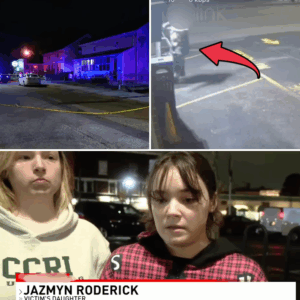In the hallowed halls of Wheeler College—a fictional bastion of liberal arts nestled in the rolling hills of upstate New York, where ivy clings to brick like forgotten grudges—secrets don’t just simmer; they erupt. Netflix’s breakout comedy-mystery A Man on the Inside returns tomorrow, November 20, 2025, with Season 2 promising a labyrinth of darker deceptions, faculty feuds, and twists that will leave even the most jaded binge-watchers questioning every tenure-track handshake. Created by the inimitable Michael Schur, the man behind the moral mazes of The Good Place and the bureaucratic ballets of Parks and Recreation, this sophomore outing swaps the creaky charm of Season 1’s retirement home for the cutthroat corridors of academia. Ted Danson reprises his Golden Globe-nominated turn as Charles Nieuwendyk, the widowed ex-professor whose accidental foray into undercover work has become a full-time folly. If Season 1 was a cozy whodunit wrapped in wry humor, this chapter cranks the dial to noirish intrigue: anonymous threats scrawled on chalkboards, endowments laced with ulterior motives, and revelations that hit harder than a department budget cut. As the eight-episode drop hits the platform at midnight PT—perfect for those pre-Thanksgiving insomnia cures—the trailer alone has racked up 12 million views, teasing a narrative so layered it feels like Schur raided the faculty lounge for inspiration. For fans still chuckling over Charles’ bingo-night blunders, this return isn’t just a sequel; it’s a syllabus rewrite, plunging our hero into a world where the real crime is complacency.
To appreciate the seismic shift from nursing home capers to campus conspiracies, one must rewind to the unassuming origins of A Man on the Inside. Premiering on November 21, 2024, the series arrived like a late-blooming perennial in Netflix’s crowded garden of true-crime satires—think Only Murders in the Building meets The Afterparty, but with Schur’s signature blend of heart-tugging humanism and head-scratching hijinks. Inspired loosely by the 2020 Chilean documentary The Mole Agent (which Schur executive produces alongside its director Maite Alberdi), the show follows Charles, a 70-something widower and retired engineering professor, who’s more at home tinkering with model trains than tailing suspects. Danson, 77 and radiating that effortless gravitas honed over decades from Cheers‘ Sam Malone to Fargo‘s gleeful villainy, imbues Charles with a quiet profundity: a man adrift in grief, his late wife’s absence a shadow that lengthens with every solved case. The pilot hooks immediately: Charles, prodded by his daughter Emily (Lilah Richcreek Stratton), agrees to a low-stakes gig helping private eye Didi (Lindsay Duncan) recover stolen heirlooms from Pacific Pines, a tony San Francisco assisted-living facility. Posing as “Harold the handyman,” he navigates shuffleboard scandals, pilfered prune juice, and a cadre of colorful codgers whose gossip flows freer than their Metamucil.

Season 1 unfolds as a masterclass in gentle escalation, its six 30-minute episodes (a Schur staple for snappy pacing) weaving a tapestry of petty thefts that unravel into profound personal reckonings. Charles’ cover blows early when he bonds with residents like the sharp-tongued Mildred (a pitch-perfect Brittany O’Grady) and the enigmatic Calbert (Eugene Cordero), whose poker-faced poker games hide deeper pains. What starts as a jewelry heist morphs into a meditation on isolation: forged wills, suppressed romances, and the quiet theft of dignity in golden years. Schur’s script, co-written with vets like Megan Amram (The Good Place) and produced under his Fremulon banner, balances levity—Charles’ disastrous attempt at a hip-hop dance class—with lacerating insight. A mid-season twist reveals the thief isn’t a grifter but a grieving grandson siphoning funds for his mother’s care, forcing Charles to confront his own paternal failures with Emily. Danson’s performance anchors it all: his crinkled eyes betraying vulnerability beneath the folksy facade, earning him SAG whispers and a Critics’ Choice nod. The finale, a tearjerker set to a soulful cover of “What a Wonderful World,” sees Charles unmask the culprit during a talent show, but not before a gut-punch confession that binds him to Pacific Pines forever. It debuted to 85% on Rotten Tomatoes, lingering in Netflix’s Top 10 for five weeks and amassing 45 million hours viewed—enough juice for a swift renewal on December 26, 2024. “Charles isn’t solving crimes; he’s reclaiming life,” Schur quipped in a Tudum interview, hinting at anthology arcs that would keep the sleuthing fresh without diluting the soul.
Enter Season 2: a bolder blueprint that transplants Charles from shuffleboard to symposiums, trading bedpans for blackboards in a pivot that feels organic yet audacious. The official synopsis, unveiled alongside first-look photos on August 21, 2025, drops our hero at Wheeler College—Emily’s alma mater, a progressive enclave of eco-activists and adjunct adjuncts—where he’s enlisted by old flame-turned-client Jack Berenger (Gary Cole), the beleaguered president facing a poison-pen scandal. Posing as a visiting lecturer in “retired engineering ethics,” Charles infiltrates the ivory tower to trace a shadowy donor whose $10 million pledge comes with strings attached: anonymous letters threatening to expose faculty skeletons unless the gift is rerouted. What sounds like a straightforward shakedown spirals into a vortex of vendettas—plagiarized theses, illicit affairs in the rare books room, and a tenure-track turf war that dredges up Wheeler’s buried hypocrisies. The trailer’s pulse-quickening opener sets the tone: Charles, fumbling a TED-style talk on “Sustainable Bridges” (a nod to his model-train obsession), stumbles into a late-night tryst between a dean and a grad student, chalk dust flying like confetti from a cover-up. “I’m too old for this Greek chorus of grudge-holders,” he deadpans to his reflection in a bathroom mirror etched with graffiti, but the glint in Danson’s eye says otherwise. Darker secrets abound: hints of embezzlement tied to the college’s “green” endowment, a whistleblower’s suspicious sabbatical, and whispers of a decades-old hazing incident resurfacing like academic acid reflux.
The twists? They’re the season’s secret sauce, engineered to outpace Season 1’s emotional sucker punches with intellectual whiplash. Early buzz from set leaks (hushed up by Netflix’s NDA ninjas) teases a mid-season bombshell: the donor isn’t a phantom philanthropist but a Wheeler alum with a grudge against Berenger, their identity concealed by layers of alumni aliases and encrypted emails. But the real gut-twist comes in Episode 5, “The Adjunct’s Lament,” where Charles uncovers a faculty clique peddling forged research grants—mirroring real-world scandals like the 2023 Ivy League plagiarism probes—only for the ringleader to be his own love interest, Mona Margadoff (Mary Steenburgen, Danson’s real-life wife of 30 years, in a meta-casting coup). Their chemistry sizzles: Mona’s a tenured musicologist with a velvet voice and veiled motives, her piano recitals doubling as dead drops for dirty deeds. “You’re playing a dangerous sonata, darling,” Charles quips during a candlelit stakeout, but when the truth drops— she’s protecting a vulnerable protégé from expulsion—the line between sleuth and sympathizer blurs. Later episodes amp the peril: a campus blackout engineered for a midnight manuscript heist, a red-herring romance that implodes into betrayal, and a finale cliffhanger involving Emily’s surprise return as a guest lecturer, her discovery of Dad’s double life threatening to tenure-track the whole operation. Schur, drawing from his Yale days, infuses it with satirical bite: potlucks laced with passive-aggression, diversity committees masking discrimination, and a viral TikTok scandal that turns a meme into motive. “Academia’s the perfect petri dish for paranoia,” he told Deadline, promising “twists that twist the knife on privilege.”
The ensemble refresh keeps the energy electric, blending holdovers with heavy-hitters for a campus crawl that’s as quotable as a syllabus. Danson remains the North Star, his Charles evolving from accidental avenger to seasoned sage, his grief for wife Amelia now a quiet compass guiding ethical quandaries. Returning: Didi (Lindsay Duncan), the no-nonsense PI whose dry martinis and drier wit provide ballast; Emily (Stratton), whose millennial skepticism clashes hilariously with her dad’s analog antics; and Joel (Aasif Mandvi), the tech-whiz nephew moonlighting as gadget guy. But the new blood bleeds star power: Steenburgen’s Mona, a siren with a side-eye that could curdle lecture notes; Cole’s Berenger, channeling Veep‘s oily charm as a president whose “visionary” vibe hides vaulting ambition; David Strathairn as the eccentric philosophy chair, spouting Socratic sarcasm while hoarding scandalous scrolls; Jason Mantzoukas as the bombastic theater prof, his monologues masking Machiavellian moves; Max Greenfield as a slick adjunct hustler with New Girl earnestness gone rogue; and Constance Marie as the fierce admissions dean, her no-filter takedowns a highlight. Michaela Conlin (Bones) slinks in as a forensic accountant auditing the donor’s dollars, while Sam Huntington adds bro-energy as a frat-adjacent facilities manager. Directed by Schur alums like Morgan Sackett and lensed by The Good Place‘s veteran cinematographer, the season luxuriates in Wheeler’s aesthetic: sun-dappled quads giving way to shadowy stacks, a score of jaunty jazz that sours to suspenseful strings.
What elevates Season 2 beyond binge fodder is its thematic torque: a scalpel to the soul of higher ed, where “ivory” towers mask marble-hard inequities. Charles’ infiltration isn’t just procedural—it’s personal, his outsider status amplifying the satire on elitism, echo chambers, and the commodification of knowledge. In a post-affirmative-action landscape, episodes probe donor influence on curricula, the gig economy’s grind on adjuncts, and the performative progressivism that papers over prejudice. Yet Schur tempers the takedown with tenderness: Mona’s arc, a slow-burn romance laced with redemption, echoes Charles’ Season 1 thaw, while a subplot involving a non-binary student’s identity crisis forces the faculty to confront their blind spots. Danson shines in quieter beats—a lakeside confessional with Emily about legacy, or a midnight jam session with Mona where violins weep for what-ifs—proving comedy can cradle catharsis. Critics at advance screenings are buzzing: Variety called it “Schur’s sharpest satire since Parks,” praising the “twists that feel earned, not engineered.” With production wrapping in Vancouver (doubling for New York’s autumnal allure) under exec producers like David Miner and Julie Goldman, the season clocks in at a crisp 240 minutes total—ideal for a holiday hearth binge.
As November 20 dawns, A Man on the Inside Season 2 arrives not as filler but fulcrum, a testament to Schur’s alchemy: turning molehills of mischief into mountains of meaning. For Danson, it’s a late-career gem, his Charles a colossus of curiosity in a world weary of wonder. In an era of endless reboots, this anthology evolution feels revolutionary—each season a fresh facade for timeless truths. Will Wheeler’s walls withstand the scrutiny? Tune in tomorrow, grab the popcorn (extra butter for the betrayals), and let Charles lead the lecture. The investigation returns, darker and more devious, but with heart enough to light the lecture hall. In the words of one trailer zinger: “In college, everyone’s got a major secret—and a minor in lies.” Class is in session; don’t be late.





